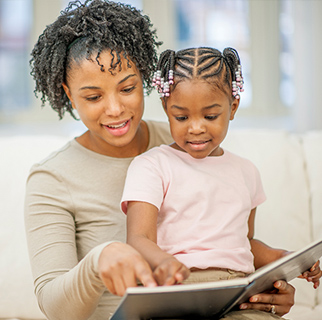A
B
C
D
E
F
G
H
I
J
K
L
M
N
O
P
Q
R
S
T
U
V
W
X
Y
Z
Click a letter to see a list of conditions beginning with that letter.
Click 'Topic Index' to return to the index for the current topic.
Click 'Library Index' to return to the listing of all topics.
Is It Time for Toilet Training?

When is the best time to teach your child to use the toilet?
There is no right time to start toilet training. Guidelines recommend that parents look for signs that suggest interest in toilet training. When the child is ready, make a potty chair available, show your toddler how it works, then offer gentle encouragement. Try not to pressure your child or give excessive praise.
Don't make your child feel bad if they make mistakes. They are to be expected.
What to do
Here are some recommendations from the American Academy of Pediatrics (AAP).
Your child should be able to do these things before you start potty training:
-
Sit, walk, dress (with help), and pull pants up and down
-
Understand and respond to directions
-
Imitate others
-
Show independence
Here are tips to make potty training go more smoothly:
-
Tell your child that the potty belongs to them.
-
Put it in a convenient spot.
-
Let your child sit on the potty chair fully clothed until they get used to just sitting on it.
-
Let your child see you using the toilet.
-
Explain the potty's purpose.
-
Take your child to the potty when they most likely need to use it.
-
Let your child go without diapers when they stay dry during the day. Nighttime control takes months longer.
-
Don't start toilet training during times of stress (for example, when moving to a new home, bringing home a new baby, or starting with a new care provider).
-
Don't punish your child for accidents or make potty training a battle between you and your child. This can lead to long-term problems like constipation. Praise your child when they successfully use the toilet. Accept that accidents will happen.
Give it time
It may take up to a couple of years before your child is completely toilet trained.
The AAP says children may show signs of readiness at 18 months, start training at 24 months, and stay dry during the day by 30 to 36 months. Most children will stay dry at night by the time they are 36 to 48 months old. Still, it's normal for some 3-year-olds and 4-year-olds to have accidents.
Online Medical Reviewer:
Liora C Adler MD
Online Medical Reviewer:
Raymond Turley Jr PA-C
Online Medical Reviewer:
Stacey Wojcik MBA BSN RN
Date Last Reviewed:
7/1/2023
© 2000-2024 The StayWell Company, LLC. All rights reserved. This information is not intended as a substitute for professional medical care. Always follow your healthcare professional's instructions.